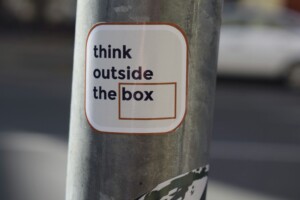
Initially, most Feng Shui teachers and authors focus on the “rules” or general principles of Feng Shui. Much of that is grounded in Yin-Yang Theory, Five Element Theory, Qi Flow Theory, Eight Trigram Theory, and more.
Next should come priorities, so that a new student or practitioner does not equate all feng shui flaws or concerns equally. For example, which is worse: to sleep in a bad personal direction or to live across the street from a cemetery?
In this case study, Exceptions to the Rule, the aim in writing it was to enlighten readers about when we can ignore certain “rules” or not make them a priority in relation to other circumstances. I also cover when a seemingly negative feature can be a positive. (One Man’s Ceiling is Another Man’s Floor).
Excerpt here:
SITTING WITH YOUR BACK TO A DOOR
“It is common sense and also a general principle taught in beginner’s classes, that you don’t sit at a desk with your back to a door. It is understood to be psychically disturbing. We have eyes in the front of our head for a reason and to turn ones’ back to the opening of a room can affect our ability to concentrate or anticipate any kind of danger. It addresses our more primal sensibilities.
And yet, I only find sitting facing a door to be important in a commercial work force, where someone has an office where they may literally be intruded upon by co-workers and caught off-guard if they do not face the door.
Most of us do not like to have noise and foot traffic going on behind our heads and most people intuitively set up their offices so that they can have a full or partial view of the door. In the work world, the only time I DON’T see this arrangement is when employees are forced to share an office. This is when you have people lining up their desks against the walls.
In a home office environment, and even on occasion in a commercial space, I have suggested that a client disregard the rule of not sitting with their back to a door. Why?
Because the truth is that there may be some things that are more important. Prioritizing for a client is what is expected of a practitioner.
We could put “sitting with back to door” in the “con” column if we are making a list of comparing pros and cons to any particular furniture arrangement. What could be in the “pro” column to over-ride this one negative feature?
- Sitting facing a personal best direction is one aspect that can trump sitting facing the door.
- Sitting in the best part of a room, which might necessitate having ones’ back to the door. And what I mean by “best part of the room” includes the following:
Every room is a miniature version of the house or the office suite. So, if sitting in better flying stars requires one to have their back to a door, then this could take precedence.
When looking at the luo-shu grid for the whole house or work space, one part of the room might be in a distinctly better area for the whole area (big Tai Ji). This might also justify positioning a desk to face away from the door. This is a totally non-obvious aspect to diagnosing a space and one has to know the flying star school to be able to appreciate this.
- Taking advantage of a view might be warranted. One of my memories of a Feng Shui Society Meeting with Master Sang was a visit to a law firm in West Hollywood. The students at the gathering were startled to see that all the attorneys on one side of the suite had their desks turned so that they were facing their windows and not their individual office doors. Master Sang made a comment about how they should just keep their desks in that position because he surmised that the job of an attorney is so stressful, that this group needed something nice and relaxing to look at to relieve their work stress. It was true that the windows all had a kind of magical view of calming tree tops. As well, having an extended view can make an otherwise oppressively small office feel bigger than it really is.”
Author: Kartar Diamond
Company: Feng Shui Solutions (R)
From the Feng Shui Theory Blog Series
Share This Story, Choose Your Platform!
Go to Top

